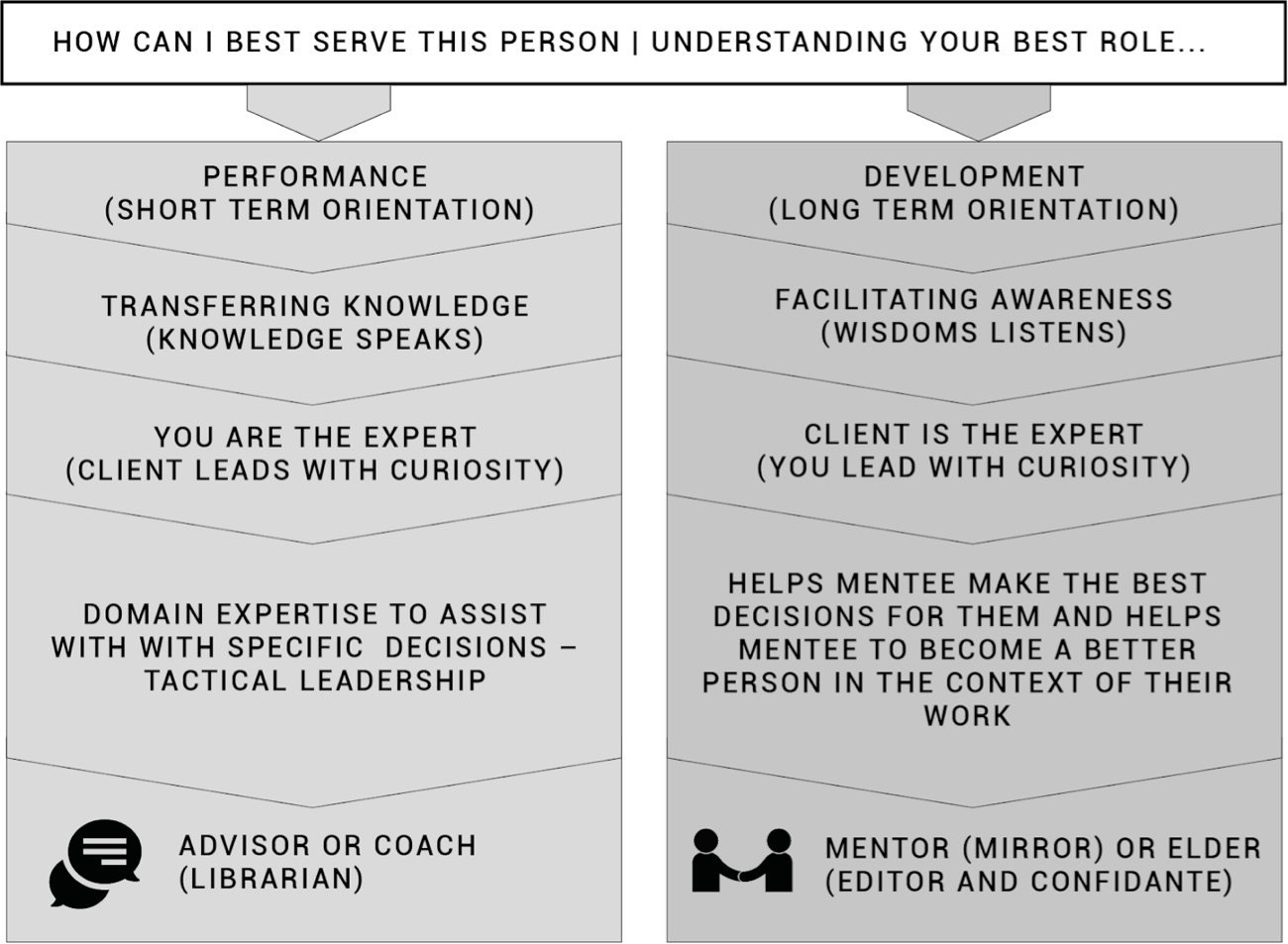
{I love the generational symbolism of this image. Thanks Chip !}
Today, for the third day in a row, I find myself sharing guest posts. Coming off the summer, the “back to school” energy sees collaborative energy flowing all around me, is it the same for you? I have a number of collaborative project concepts at various stages and having a lot of great conversations to explore and develop.
One of them is absolutely around the launch of Chip Conley’s book, “Wisdom at Work – The Making of a Modern Elder“, and I am supporting Chip with this and the interest it is stimulating in the UK and European market. If you’d like to have Chip talk to your business, organisation, membership, conference, we are planning a trip over here in Q1 2019, so I’d love to hear from you and connect to possibilities!
For today’s post, then, Chip posted a wonderful “how to” post on mentoring, and this resonates to me on two levels.
First, it is absolutely key to what it means to be a Modern Elder, as highlighted in the book and at the Modern Elder Academy.
Second, the way he defines the role of Mentor resonates for me in how I have evolved in what I am passionate about offering to clients, and I describe both what type of person is attracted to work with me and also how I work with you on the “#BeMoreYou” page of this site.
So, to Chip’s post, originally published on Linked In here.
How to be a Master Mentor in Midlife
I never got the chance to meet my mentor, the man who helped me early on as an entrepreneurial CEO in my late twenties. He changed my life when he responded to an unsolicited letter I sent him in 1989 asking, “How did you create the vibrant culture at Southwest Airlines?” Co-founder Herb Kelleher was 30 years older than me and the CEO of America’s most successful airline for 37 years. In the decade that followed, he responded to occasional letters from me, generously providing guidance that helped me build the confidence to lead from a unique perspective. His answer to my first question was, “Our employees come first, the customer comes second because if our employees aren’t happy, our customers won’t likely be happy either.” Three decades ago, this was an unusual business philosophy. But Herb helped me to see that the name of my company, Joie de Vivre, said it all as he advised, “Don’t forget. You’re in the joy business and it all starts with creating a culture of joy for your employees.” {note from Tom: Herb Kelleher and Southwest Airlines are an absolute favourite case study of mine on the commercial power of purpose and culture and this goes back many decades. Wonderful to hear that Chip was mentored by Herb!}
Author Ray Bradbury wrote, “We all need someone higher, wiser, and older to tell us we’re not crazy after all, that what we’re doing is all right.” But, doesn’t that sound a little like a parent? There’s no doubt that most parents have their kids’ best interests at heart. But there’s often too much of a caretaker role mixed into the parent-child dynamic, such that the primary impulses are toward conformity instead of freedom. Yet, as young people venture into the workplace and – due to their abundant digital skills – are often destined for fast career growth, more and more are looking for guidance. An MTV survey showed that 75% of Millennials say they would appreciate an advisor, coach or mentor in their life.
Let’s define these terms (understanding that my definitions are not without controversy):
- An advisor offers domain expertise to assist with quite specific decision-making.
- An executive coach helps you build your tactical leadership skills.
- A mentor (the most rare of the three) helps you make the best decisions for you, and helps you to become a better person in the context of your work. Quite often, a mentor is a mirror as they (ideally) have an almost alchemical connection with you that can help you see yourself better. And, a mentor can potentially be your age or even younger (“reverse mentorship”).
My first mentee was a hospitality entrepreneur in his mid-twenties who’d started a brand with a wine shop, a restaurant, and a bar, and his business was growing into hotels. I was in my early thirties at that time, and I’d say I was a combination of an advisor and a coach. But, as I spent more time with him, and his career started to move more into politics, my role evolved into a mentor as I often asked him deeper questions about his own intentions. He ultimately became mayor of a large city and I would spend many a Friday afternoon in his city hall office, acting as a mirror for his passions, aspirations, and hard truths. A great mentor will challenge a mentee and help to reveal their blind spots, with the best of intentions. And you’ve got to be willing to be vulnerable yourself. Offering personal stories that show you’ve been there is one way to build the foundational trust critical to a successful mentor-mentee relationship. It was an honor to mentor Gavin Newsom, who will likely become the next Honorable Governor of California.
It’s been about two-dozen years since I started that first mentor-mentee relationship and in midlife I realize there’s another word that better captures the occasional intergenerational nature of the relationship. If a mentor is a mirror, then an elder is an editor. Elders may be advisors, coaches, and mentors, too. But, their unique value is in the ability to see in a mentee what they have already overcome themselves, as well as the characteristics and challenges that make the mentee unique. The elder naturally distinguishes between what’s worth sweating about and what’s not. The mentee is a storehouse of something the elder is quite familiar with, but some rearranging is necessary for it to make sense to the mentee.
As I grew more comfortable in my “modern elder” role at Airbnb, working with the company’s co-founder and CEO Brian Chesky, I noticed that in a confidante relationship like this, presence can substitute for performance and the process of connection can substitute for productivity. The opposite of “presence” is “absence.” And we all know what it feels like to talk with someone who is absent, especially if they’re often distracted by their smartphone. The qualities of presence include:
(a) Providing a full-body listen (you are at attention and offering engaged listening), which means you’re not distracted with your own mind chatter.
(b) Listening with empathy, not just “to” the story but “for” the story as there’s often a systemic theme or mindset that the mentee isn’t able to see.
(c) You provide true insight, often through the use of catalytic appreciative inquiry questions.
(d) Sharing your own vulnerabilities from the past, but recognizing that your historical world may be quite different than your mentee’s today so being a curious mentor who doesn’t know it all provides a terrific role model for someone younger than you.
(e) Imagining that your mentee is occasionally mentoring you will keep you more humble and alert. The best mentors I know are constant learners as it takes them off their teacher pedestal.
As you’re presented with an opportunity to provide counsel, ask yourself, “How can I best serve this person?” Is this a performance-oriented inquiry (“I’m not meeting my sales numbers, what can I do differently?”) or a development-oriented inquiry (“How can I build my emotional intelligence to create better relationships with all of my direct reports?”)? Another way to look at it is to ask yourself, “Will I primarily be transferring knowledge (performance-oriented), or facilitating awareness (development-oriented)?” Knowledge speaks. Wisdom listens. The table below might help you.

It’s hard to measure the full impact of a mentor or, later in one’s career, a Modern Elder. Clearly, it’s not about how many widgets they produce individually in an hour. There’s an “invisible productivity” that comes from a Modern Elder in the workplace. It may be how they helped create a habitat for people to thrive. That’s why the question I always ask a direct report, as well as anyone I’m mentoring is, “How can I support you to do the best work of your life?” Not only does it show I’m committed to their success, but it also puts responsibility in their lap to think through what would super-charge their career. You may have spent the first half of your career being interesting, but shifting to being interested in the second half of your career is richly rewarding.
For those of you who want to explore this further, you might enjoy my new book or this Monocle podcast on mentorship in Europe with some great real-world examples.
Chip Conley is a New York Times best-selling author and veteran hospitality executive who renewed himself in midlife by collaborating with the Millennial co-founders of Airbnb to create the world’s largest global hospitality brand. His next book, Wisdom@Work: The Making of a Modern Elder, is available on pre-order.
